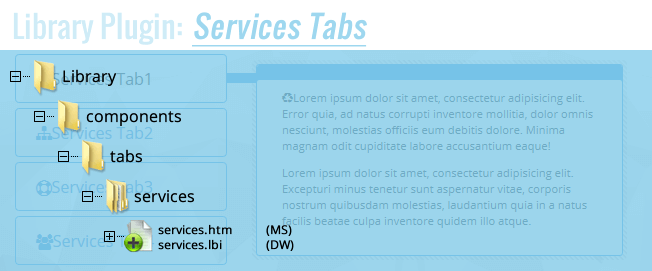The Facts - Electricity At Work Regs 1989
The Electricity at Work Regulations 1989 imposes a duty of care on employers
to manage their electrical systems and products so as not to cause death or
injury to others. The regulations cover the design, construction, operation
and maintenance of these systems. This is a statutory law, we must all
comply with.
The Electricity at Work regulations came into force on 1st April 1990.
To comply with them, employers must monitor the ongoing condition of their
electrical systems through regular inspection and testing to ensure that the
systems are safe to use. Records of the test results should be kept on site.
The regulations cover all premises and places where people work and customers
have access to, including:
Public buildings such as schools, hospitals, sports and leisure centres,
museums, cinemas, theatres, football, cricket and athletic grounds; Residential
homes for the elderly, hotels and guesthouses; Industrial factories, farms and
construction sites; and Commercial offices, shops and warehouses.
If you require any further information please go to our contact page,
leave your details and we would be more than willing to help.
EICR - Electrical Installation Condition Report
A Domestic Periodic Inspection or Electrical Installation Condition
Report (EICR), is an inspection on the condition of an existing electrical
fixed wiring installation, to identify (in order of priority) any
deficiencies against the national safety standard for electrical
installations.
A Periodic Inspection Report is a check of the fixed electrical wiring
circuits in a property to ensure that they are safe and performing well.
The report you receive includes details of defects and assesses the
performance of the electrical system against the UK standards of safety for
electrical installations.These are set out in BS (British Standard)
7671: 2008 (IEE Wiring Regulations 17th Edition).
The Elecitrical Installation Condition Report details any areas where the
installation falls short of the standard whether it is due to poor
workmanship, age of the system and materials, or other causes. It then
includes a list of recommended repairs or actions needed to make the
installation safe or bring it up to standard
If you require any further information please go to our contact page,
leave your details and we would be more than willing to help.
Electrical Installation Certificate
The Niceic Electrical Installation Certificate is to confirm that the
electrical installation work to which it relates has been designed,
constructed, inspected, tested and verified in accordance with the
national standard for the safety of electrical installations, British
Standard 7671 (as amended) - Requirements for Electrical Installations.
Minor Works Certification
A safety certificate used when only an addition or alteration is made
to an electrical installation and no new circuits have been added.
This safety certificate is issued to confirm that the minor electrical
installation work to which it relates has been designed, constructed,
inspected, tested and verified in accordance with the national standard
for the safety of electrical installations, British Standard 7671
(as amended) - Requirements for Electrical Installations (the lEE Wiring
Regulations).
If you require any further information please go to our contact page,
leave your details and we would be more than willing to help.
Emergency lighting Certification
If your commercial property hasn't had a Periodic Inspection for its emergency
lighting within the last year or is due for an inspection - call us today as
your log book could be out of date!
Shops, offices and other premises previously excluded from legislation require
the installation of additional emergency lighting to satisfy the Emergency
Lighting and the New Fire Safety legislation – the Regulatory Reform
(Fire Safety) Order 2005. Not only must premises contain emergency lighting and
escape route signage, the equipment installed must be the correct type, installed in the correct
location and satisfy the requirements of BS 5266.
On completing or change of an emergency lighting system installation, an Emergency
Lighting Test Certificate should be supplied to the occupier/owner of the premises.
A copy of this certificate would be required by the enforcing authority.
Ongoing a yearly inspection of your emergency lighting is required and a new
Test Certificate issued at intervals of no more than 1 year.
If you require any further information please go to our contact page,
leave your details and we would be more than willing to help.
Fire Alarm Certification
From 1st October 2006 The Regulatory Reform (Fire Safety) Order 2005 requires
the Responsible Person (RP) of any non domestic premises to carry out a fire
risk assessment, including measures to reduce or eliminate the risk of fire,
and identify persons at risk. Where there are 5 or more employees, a record
must be kept of significant findings and a definition of a Responsible Person
is contained in the above Order.
There are official guidance documents on www.gov.uk which will assist you in
conducting a fire risk assessment.
Where the RP does not have control of all parts of the building and it is
shared with other persons, they should be informed of significant risks
identified. The person who does have control (landlord, owner, or other employer etc.) has
a responsibility to make sure the regulations are complied with, in the parts
they control. This may require communication and cooperation between parties to
ensure coordination of fire safety provisions, fire fighting measures,
evacuation procedures etc.
If you require any further information please go to our contact page,
leave your details and we would be more than willing to help.
Bespoke Service
We understand that you want electricians working outside normal working hours. We can offer a bespoke service working around your normal working hours. Our Commercial Electricians offer a highly professionally recognized service, tailored to meet your unique individual requirements. Each job is assed by a contracts manager, who will assess your needs and then send you a competetive quote.
All our Commercial Electricians are qualified to carry out Electrical Installation, Maintenance and Repair works for the Commercial market, and do so in accordance with 17th edition IEE wiring regulations BS 7671:2008, We comply with Health & Safety regulations under the Electricity at Works Regulations 1989
Our Expert Commercial Electrical Contractors or Approved Electricians can carry out electrical installations in all manner of homes and outlets from hotels, restaurants, salons and shops to factories and warehouses. Services range from full electrical project management to the installation of a single socket.
For further information do not hesitate to contact us
 My Elec
My Elec 



